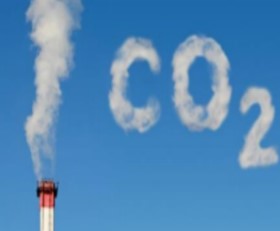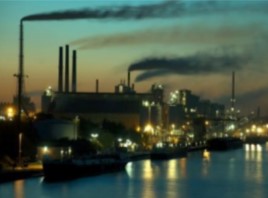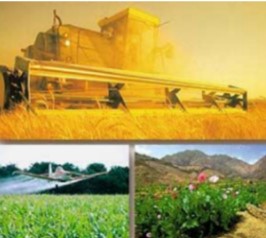- Definition and Types of Energy
- Myths And Misconceptions About Energy
- The Relationship Between Energy and Environment
- Climate Change and Carbon Footprint
- Greenhouse Gas Effect
- The Role of Human-Induced Greenhouse Gases and Energy Consumption
- Energy Efficiency and Sustainability
- Renewable Energy Sources and Future Perspectives (video)
- Play and Learn
- Solar Energy Conversions
- Solar Energy Worldwide
- Solar Energy in Partner Countries
- Positive and Negative Impacts
- Technologies for Harnessing Solar Energy
- Solar thermal energy technologies and applications
- Electricity Generation Methods
- Passive Heating and Cooling of Residences with the Sun
- Concentrator solar power (CSP) systems and electricity generation
- Systems and Applications That Generate Electricity directly from solar rays
- Photovoltaic Cells and Panels
- Domestic PV Systems
- Off-Grid PV Systems
- Hybrid Connected Systems
- Materials Used in PV Cells
- Play and Learn
The Relationship Between Energy and Environment
Energy and environmental considerations are deeply intertwined. Historically, fossil fuels have driven industrial growth, but they have also led to significant environmental challenges, including greenhouse gas emissions, climate change, and ecological imbalances. These issues highlight the urgency of adopting sustainable energy practices. Renewable energy sources, such as solar and wind power, provide promising alternatives, reducing harmful emissions and fostering ecological balance Ref .
Energy consumption is not only a technical matter but also a societal and economic concern. It is influenced by population growth, technological advancements, energy reserves, and environmental awareness.



The global reliance on fossil fuels for energy has brought about severe environmental and economic challenges. Depleting fossil fuel reserves, energy import dependencies, and accessibility issues underscore the need for a transition. Additionally, emissions from fossil fuels drive global temperature increases and climate change, threatening energy security and sustainability.



Sustainability, as defined in the United Nations' 1987 Brundtland Report, refers to meeting present needs without compromising future generations' ability to meet their own. Achieving this balance necessitates prioritizing energy sources that minimize environmental harm. To align energy production with sustainability principles while supporting economic growth and protecting the environment, key measures include:
- Reducing the consumption of energy resources,
- Encouraging and implementing energy saving,
- Increasing energy efficiency with innovative technologies and policies.
By addressing these elements, it will be possible to align energy production with sustainability principles and ensure both economic growth and environmental protection.


Energy is indispensable in every facet of modern life, from daily activities to industrial production. As societies grow and evolve, energy production, sustainability, and economic development form a critical nexus shaping global progress. While energy is vital for development, its unchecked production and consumption have disrupted ecological balances and created global challenges. The increasing visibility of environmental problems, driven by rapid industrialization and urbanization, emphasizes the need for sustainable energy solutions.


Environmental issues have become more pronounced since the mid-20th century due to population growth, rapid urbanization, and industrial activities. These changes have intensified air, water, and soil pollution, threatening ecological health and stability. Addressing these challenges requires integrated approaches that balance energy needs with environmental protection. Policies promoting renewable energy adoption and improving energy efficiency offer viable solutions, aligning with the dual goals of sustainability and economic growth.